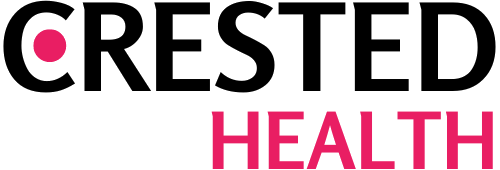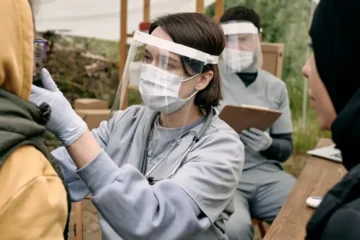Implementing refugee health education initiatives can empower refugees to take control of their health and well-being by providing them with information and resources to make informed decisions about their healthcare.
Public-Private Partnerships Engaging in public-private partnerships can leverage resources and expertise from both sectors to improve healthcare delivery and outcomes for refugee populations.
Technology Solutions for Healthcare Delivery Exploring innovative technology solutions, such as mobile health apps, electronic health records, and telemedicine platforms, can help overcome logistical challenges and improve the efficiency and effectiveness of healthcare delivery in refugee settings.
VI. Case Studies
Successful Refugee Health Programs Highlighting successful refugee health programs and interventions that have effectively addressed the unique needs of refugee populations and improved health outcomes.
Impactful Interventions in Refugee Camps Examining impactful interventions in refugee camps and settlements that have made significant improvements in healthcare access, quality, and outcomes.
Examples of Multidisciplinary Approaches Showcasing examples of multidisciplinary approaches to refugee healthcare that have brought together healthcare providers, policymakers, NGOs, and community organizations to address complex health challenges.
VII. Global Initiatives and Partnerships
Role of International Organizations Discussing the role of international organizations such as the United Nations High Commissioner for Refugees (UNHCR) and the World Health Organization (WHO) in coordinating global efforts to improve refugee health.
Collaboration Between Governments and NGOs Highlighting the importance of collaboration between governments, NGOs, and other stakeholders in implementing effective refugee health policies and programs.

xr:d:DAF0TIAJPV0:2,j:1000208463029161527,t:23111604
Funding and Resource Mobilization Efforts Exploring funding and resource mobilization efforts aimed at supporting refugee health initiatives and ensuring sustainable, long-term solutions to refugee health challenges.
VIII. Ethical Considerations in Refugee Healthcare
Human Rights and Healthcare Access Emphasizing the importance of upholding the human rights of refugees, including their right to access essential healthcare services without discrimination or barriers.
Cultural Competency and Sensitivity Promoting cultural competency and sensitivity among healthcare providers to ensure respectful and effective communication and care for refugee patients.
Confidentiality and Privacy Concerns Addressing confidentiality and privacy concerns in refugee healthcare settings to protect the rights and dignity of refugee patients and uphold medical ethics.
Equity in Healthcare Delivery Advocating for equity in healthcare delivery to ensure that all refugees, regardless of their background or circumstances, have access to the same standard of care and treatment.
IX. Future Trends in Refugee Health
Integration of Technology Exploring the potential impact of emerging technologies such as artificial intelligence, telemedicine, and digital health solutions on refugee healthcare delivery and outcomes.
Advocacy and Policy Changes Discussing the role of advocacy and policy changes in shaping refugee health policies and programs at the local, national, and international levels.
Research and Innovation in Healthcare Solutions Highlighting the importance of research and innovation in developing new and effective healthcare solutions for refugee populations, including vaccines, treatments, and service delivery models.
X. Conclusion
Summary of Key Points Summarizing the key challenges, barriers, strategies, and initiatives discussed in the article regarding refugee health.
Call to Action for Addressing Refugee Health Needs Issuing a call to action for policymakers, healthcare providers, NGOs, and individuals to prioritize refugee health and work together to ensure that all refugees have access to the healthcare services they need and deserve.
Hope for a Better Future for Refugee Populations Expressing optimism and hope for a better future for refugee populations, where their health and well-being are safeguarded, and their rights and dignity are respected.


